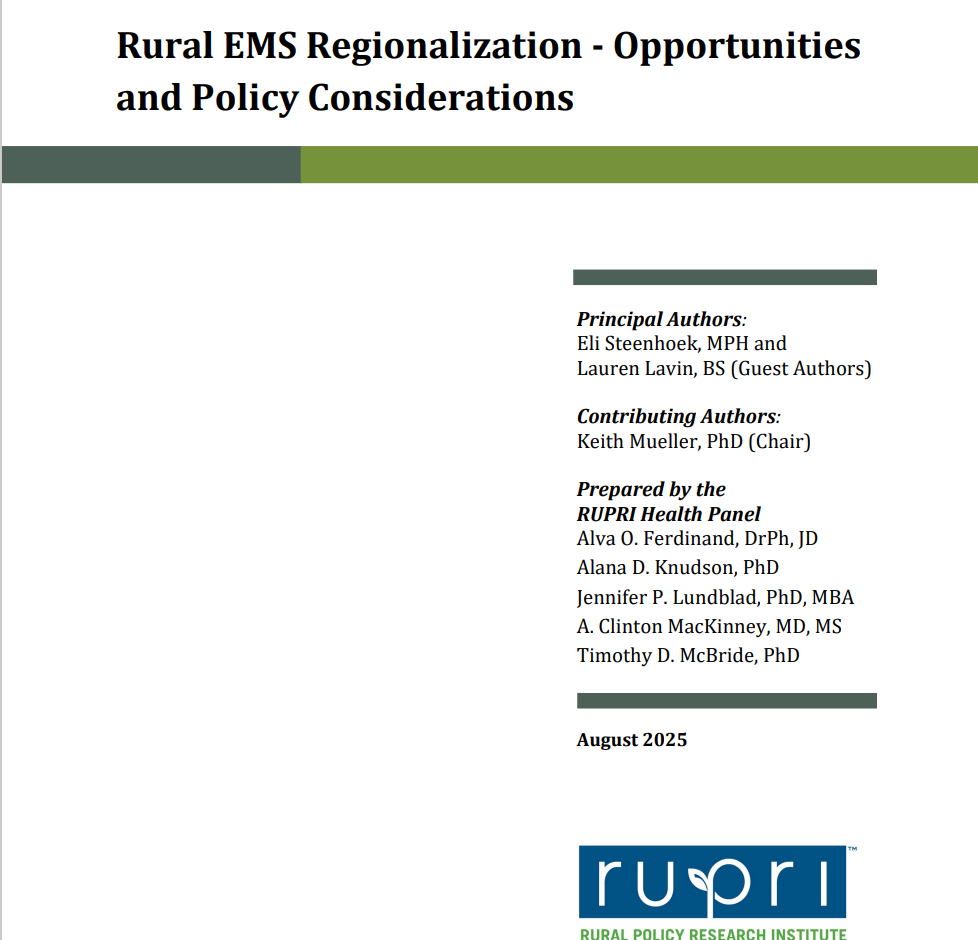The RUPRI Health Panel has released a policy brief on Rural EMS Regionalization – Opportunities and Policy Considerations. This policy brief explores Emergency Medical Services (EMS) regionalization across rural states in the United States and evaluates the structural barriers, emerging models, and policy dynamics affecting EMS’s long-term viability. The paper provides insights for policymakers, EMS agencies, and rural health advocates, showing how regionalization can improve EMS services as a component of rural healthcare.
Key Findings
The following key findings emerge regarding effective EMS regionalization strategies:
- Continued workforce challenges, including recruitment, retention, and training, which affect service quality in rural areas, as declining volunteerism creates significant service gaps.
- Effective EMS regionalization requires strong medical direction, community involvement, and practical consideration of available resources rather than one-size-fits-all mandates.
- Diverse approaches to EMS regionalization reflect states’ unique geographic, demographic, and regulatory environments—there is no one-size-fits-all solution
- Outcome-focused EMS quality metrics show more value than traditional response time measurements alone for evaluating service effectiveness
Eli Steenhoek and Lauren Lavin were Principal and Guest Authors. The brief was supported by a grant from The Leona M. and Harry B. Helmsley Charitable Trust.

